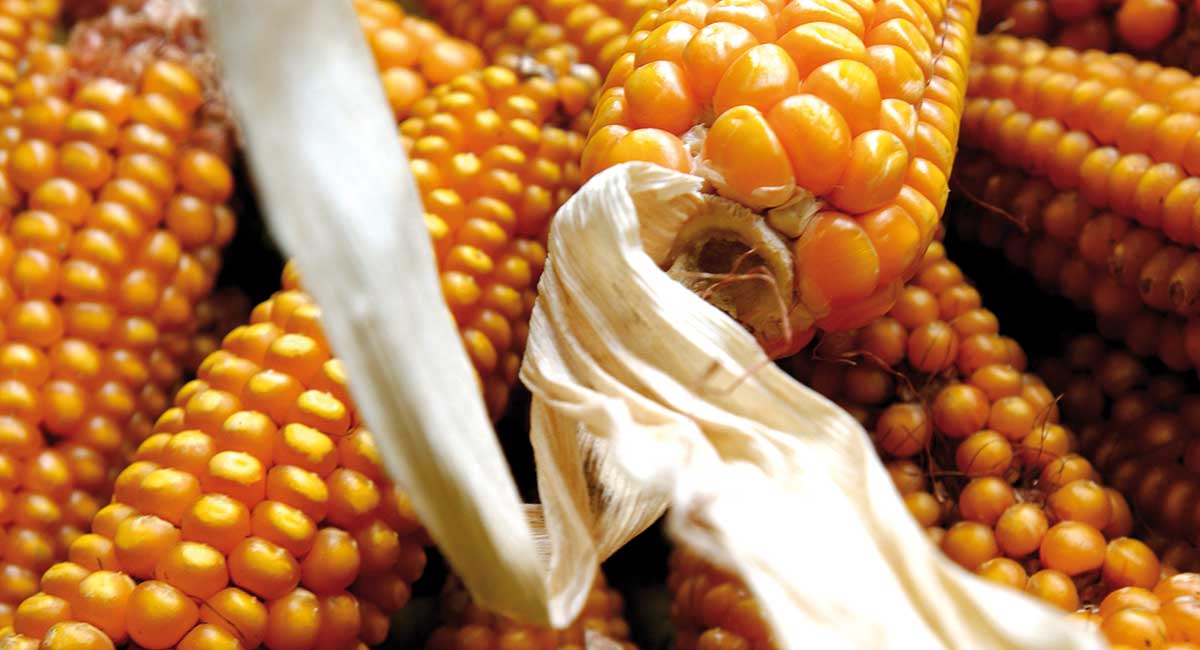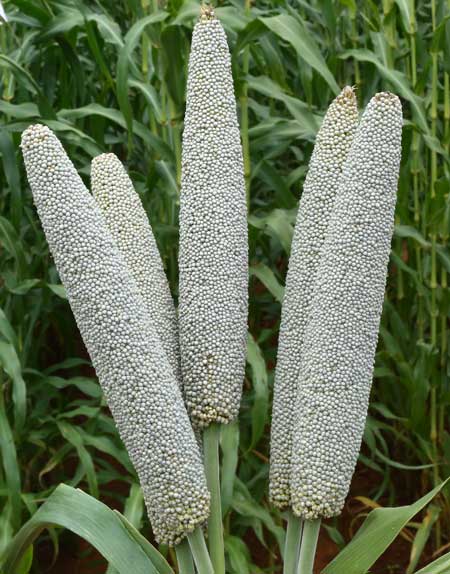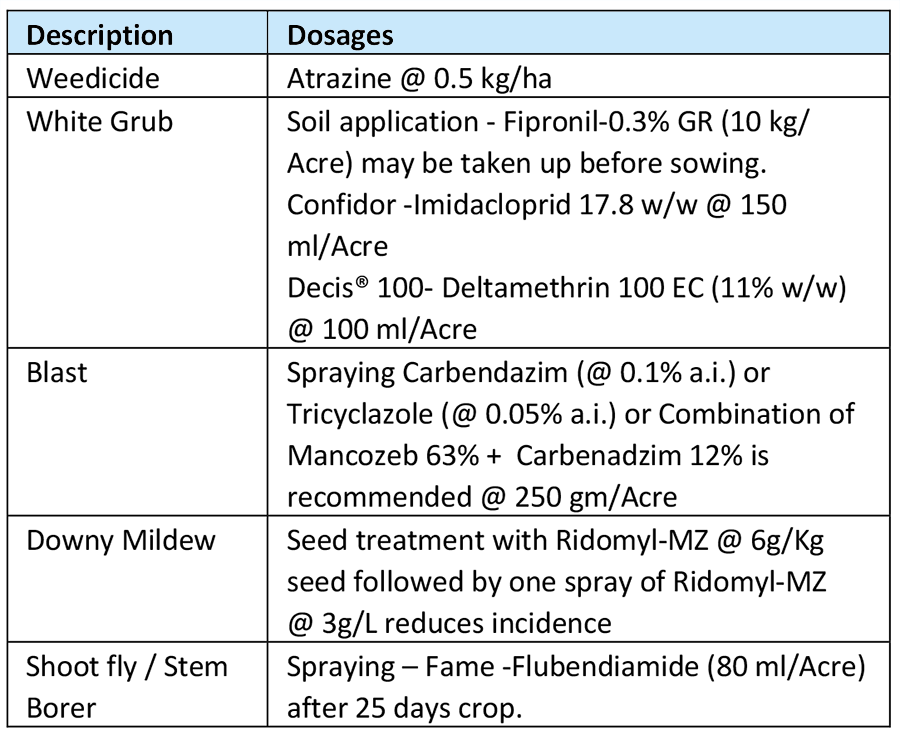




1.5 kg/ Acre in Kharif, 3-4.5 Kg/Acre in Summer
Maintaining row-row distance 50 cm by seed drill and plant-plant distance 15 cm at depth of 4-5 cm.
Thinning within 2 weeks should be compulsory. Earthing up also increases the crop growth
Selection of Soil – Sandy loam and light or loam soil with proper drainage are considered as best
Field preparation -Prepare the field by doing 1st ploughing with mould-bold plough followed by 2-3 ploughing with cultivator to pulverize the soil

Fertilizer’s recommendations may slightly vary from soil to soil and location to location. Need-based application of zinc is also recommended for better yields
Sufficient soil moisture at tillering, flowering and grain filling stages is required for higher yields. Note that Millet is a dry land crop and unnecessary irrigations should be avoided.

The best stage to harvest Pearl Millet is when the plants reach physiological maturity determined by the black spot at the bottom of the grain. When the crop matures, the leaves turn yellowish and present a nearly dried up appearance. The grains are hard and firm. The usual practice of harvesting Pearl Millet is cutting the ear heads first and the stalks later. The stalks (straw) are cut after a week, allowed to dry and then stacked. Grain at or below 14% moisture is considered dry. For long-term storage (more than 6 months), grain moisture content should be less than 12%.